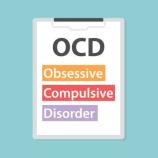Family Accommodations
Family Accommodations

Obsessive and compulsive disorder (OCD) symptoms intensely impact individuals and the entire system in which they live. It can be beyond challenging and painful to watch someone you love struggle with severe anxiety, panic attacks, and engage in behaviors (or thoughts) that do not seem rational. Most of us want nothing more than to make the suffering stop for our loved ones. We will do what we can to help them feel better and make life easier for the individual, ourselves, and the family. Many do not realize that their well-intentioned efforts to support or problem solve are actually accommodating the intense anxiety associated with OCD and helping the anxiety to grow and spread throughout their loved one's life. Let's dive deeper to explore how families or support systems may unknowingly create an environment where OCD and anxiety can thrive and how families can truly help their loved ones to manage OCD and anxiety.
What is OCD and Anxiety?
Understanding “accommodation” requires a basic knowledge of OCD and anxiety. OCD contains two parts – (1) obsessions (thoughts) that cause significant anxiety or fears and (2) compulsions (behaviors or thoughts) performed to reduce the anxiety caused by the obsessions.
The compulsions do not always make sense or connect logically to the obsession. Compulsions lessen the anxiety associated with obsessive thoughts. Compulsions show up as avoidance, observable outward behaviors, or internal processes that may go unseen by others. Obsessions are often labeled in treatment as "garbage" thoughts that do not deserve attention or energy. Anxiety is a physical and mental process that activates our fright, flight, or freeze response which is crucial to survival. The survival instinct is not a conscious process, but it does influence our conscious thoughts, behaviors, and external world. Unfortunately, in our modern world, the survival response can be activated by events or thoughts that do not really mean we are in a life-or-death situation. Our animal brains process the stressor this way, and our bodies react making it hard to think rationally or logically.
I like to compare managing OCD and the associated anxiety to feeding a wild animal, such as a raccoon. I live near a forest preserve in the North Shore of Chicago, and we always have critters passing through our yard. If we leave food out for the raccoons (even unintentionally through our garbage), they will hang out and bring more friends to eat and live. Over time, they can become a nuisance and will not leave because of the available food. If we do not feed the raccoons, they will move on and find another place to live with better resources. We feed the OCD and anxiety “raccoon” by giving energy and attention to obsessions through avoidance, compulsive behaviors, and the belief that we cannot tolerate our distressing feelings (anxiety).
How do Families Accommodate (or Feed) OCD and Anxiety?
Often, OCD symptoms and anxiety significantly impact the entire family system. Families engage with the loved one's anxiety in ways that will make their daily lives more manageable. Families "feed" the OCD raccoon by helping loved ones avoid feelings or situations and engage in compulsions. Families can accidentally reinforce the idea that the individual cannot (or does not need to) tolerate the discomfort of anxiety. These behaviors are hardly ever malicious or meant to harm. These "feeding behaviors," or accommodations, can be sneaky or more easily noticed. Here are some examples of family accommodations in daily life:
- Providing constant reassurance
- Responding to repeated apologies
- Answering the same questions over and over
- Avoiding tasks
- Avoiding places
- Avoiding objects
- Avoiding discussions about emotions or important topics
- Hiding items or sneaking items
- Engaging in checking behaviors with your loved one or at their request
- Engaging in rigid routines with loved ones
- Changing your behavior due to a loved one's anxiety
- Lacking physical or emotional boundaries
- Lack of communication when anxious emotions and compulsive behaviors happen
- Actively helping someone do something that they think will relieve their anxiety. These activities do not typically make sense for the situation or feel extreme based on the context.
How can Families Help their Loved Ones with OCD and Anxiety-related Behaviors?
If you have a loved one suffering from OCD and anxiety, examine your behaviors.
- Are you engaging in compulsions with your loved one?
- Are you helping them to avoid situations or tasks that may cause anxiety?
- Are you staying silent about your concerns to prevent causing more stress?
You can help by having boundaries around your behaviors or communication and by speaking up when you observe the OCD and anxiety hijacking your loved one's brain. Your self-care and stress management are critical to maintaining boundaries and supporting your loved one effectively. I also highly encourage you to talk to a professional! A therapist can help you to examine your role in feeding the OCD raccoon and help you to communicate calmly, patiently, and lovingly. If a loved one is in OCD treatment, families and support systems are often encouraged to be part of the treatment plan (with the individual's permission, of course) to make sure that the environment is a supportive, but not an accommodating space for OCD and anxiety to live. OCD and anxiety impact everyone involved, but you and your loved ones do not have to face it alone!
This post is presented in collaboration with ADAA's OCD and Related Disorders SIG. Learn more about the SIG.




















